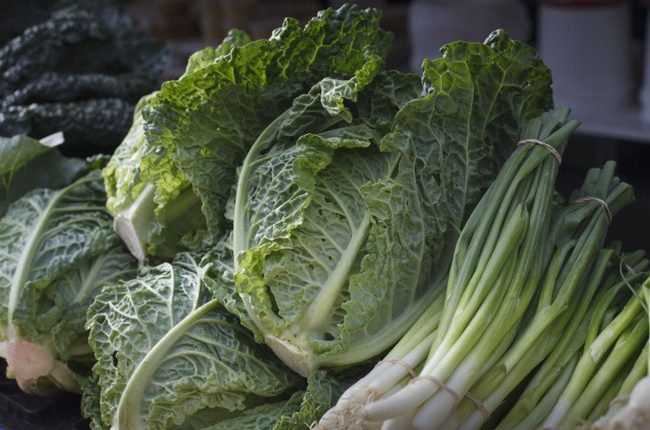
We are pleased to present this guest essay from Chef Andrew Gruel, a well-known commentator and observer. Chef Gruel is a graduate of Johnson & Wales University, a food entrepreneur, and television personality. He is the Founder of Slapfish Restaurant Group (27 locations), the award-winning food truck turned international brick and mortar, based out of Huntington Beach, CA, and currently CEO and founder of American Gravy Restaurant Group. Chef Gruel can be found on X/Twitter at this link.
As always, the opinions expressed by the guest author do not necessarily represent those of Hot Air or Townhall Media.
Ask any random person on the street to define junk food, and they’ll give the same answer: soda, chips, and candy. In a world where people argue endlessly over daily life, this universal agreement on junk food is rare. Given this consensus, it’s disheartening that we’ve spent billions of dollars year after year feeding low-income Americans junk food under the guise of nutrition. It’s time for elected officials to take notice of their peers – leaders such as Rep. Josh Brecheen, Sen. Mike Lee, Arkansas Governor Sarah Huckabee Sanders, and Idaho Governor Brad Little—among others— it’s time to step up and protect their constituents from disease.
SNAP, the Supplemental Nutrition Assistance Program, was created to ensure people don’t go hungry by providing nutritious food. Yet, we’ve done the opposite, subsidizing junk food habits. This disservice to Americans uses hard-earned taxpayer money to perpetuate chronic illness among low-income communities while pretending to help.
This failure is typical of bloated government programs: create a catchy, profound title, then waste piles of money enriching large corporations while making people sick. If we truly wanted to help, we’d provide clean, unprocessed food. Instead, we take the lazy approach—cheapening food and pushing people toward medicine and quick fixes.
As a chef, I’ve spent years creating meals that nourish both mind and body. I’ve had my own struggles with an unhealthy diet of processed junk food while working 100-hour weeks, saucing plates, and peeling asparagus. It tore my body apart and muddled my mind. Early on, I learned that to excel, I needed to live the mantra that food is more than fuel—it’s the foundation for health, culture, and community. Food is medicine; it can prevent, manage, and treat many illnesses that shorten lives and drive anxiety and depression. This is why I support restricting SNAP benefits for junk food and soda. We need to prioritize health by providing communities with real food, not just foil bags of chips or cans of sugar. These restrictions aren’t about control; they empower people to make choices that foster sustainable well-being.
By its name, SNAP should encourage nourishing food. Imagine families buying whole cuts of meat, seafood, fresh produce, herbs, spices, or even an electric slow cooker. These foods aren’t just healthier; they build culinary skills and cultural traditions. A USDA study shows that when SNAP users are incentivized to buy fresh produce, they consume more nutrient-dense foods, which improves dietary outcomes and fosters community through shared meals. Critics claim such food isn’t accessible. That’s false. Frozen beef, poultry, or fish can be shipped anywhere in the country. Even that single change would be better than the current system.
Taxpayers would feel better knowing their money supports local U.S. farmers, fishermen, and ranchers rather than large food manufacturers. Imagine that tax dollars actually producing lasting change! It’s time to rethink the SNAP supply chain: fund food producers directly and ship to SNAP recipients, like a drop-ship program between the USDA and farmers. This would save billions in administrative costs and significantly reduce future healthcare expenses, the largest expense in the federal budget.
There are obvious ways to fix SNAP, but for years, the government has been too lazy to act. Special interest money often dampens small sparks of awareness. The government’s slow, clumsy operations let a few profit from ineptitude. Now, we’re at a crossroads, with enough sparks to ignite change. The MAHA movement, driven by advocates like Calley Means and RFK Jr., has exposed the dark influence of big food and soda on government spending and our collective health. Change is now a mandate.
A few leaders have taken this mandate to the floor, facing fierce opposition. Critics argue SNAP restrictions limit choice, but they miss the point. Junk food isn’t a “choice” when it’s cheap, addictive, and heavily marketed. True freedom comes from access to quality ingredients and the knowledge to use them. Pairing restrictions with nutrition education and incentives, like matching dollars for produce, can amplify SNAP’s impact.
There’s no nuance here. This isn’t about freedom—it’s about health. SNAP is a financial transaction between taxpayers and those in need, with the government as the middleman. Too often, they subcontract their responsibility to soulless companies that profit by addicting kids and adults to nutrient-free products. Food and soda companies get rich, the public gets sick, and Big Pharma steps in with a lifetime of medicine. Healthcare costs rise, taxes increase, government grows, and corporations profit. It’s a perfect pyramid scheme.
It’s time to prioritize food and nutrition and embrace bipartisan change. Give people real food, not junk. Stop subsidizing chronic disease. Honor food as more than sustenance—a sacred bond weaving communities tight, nurturing a healthier America with every shared bite.







